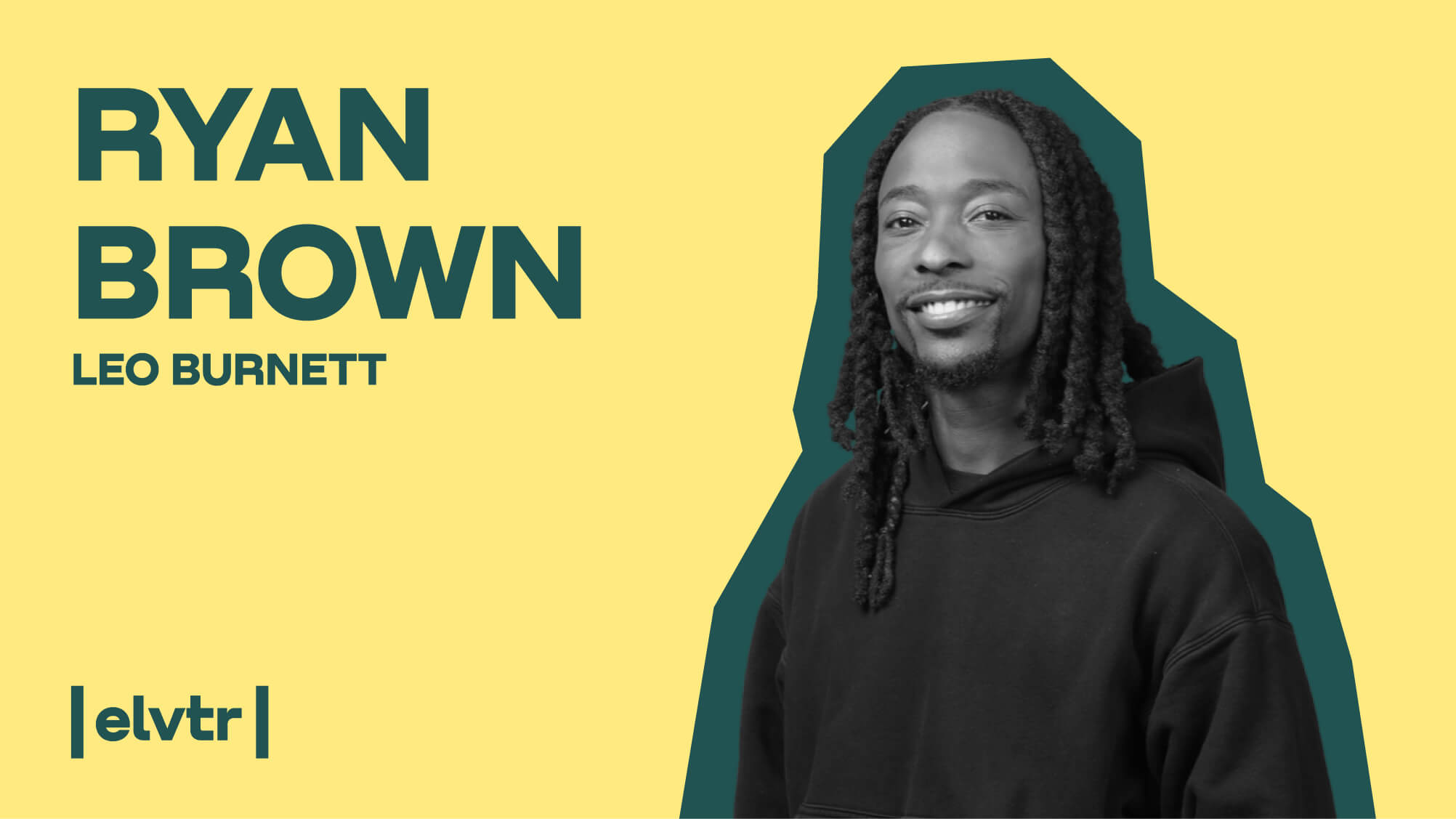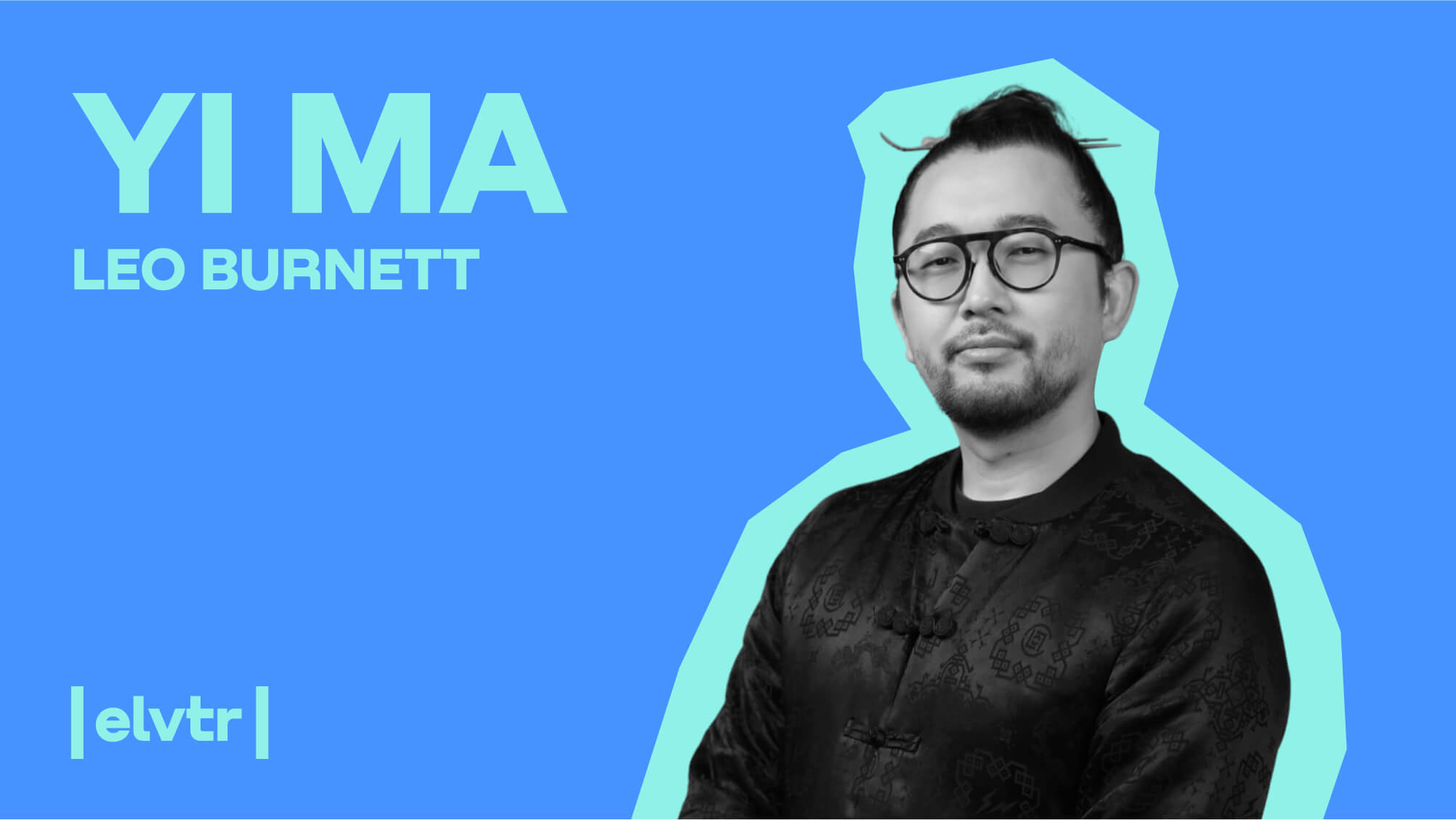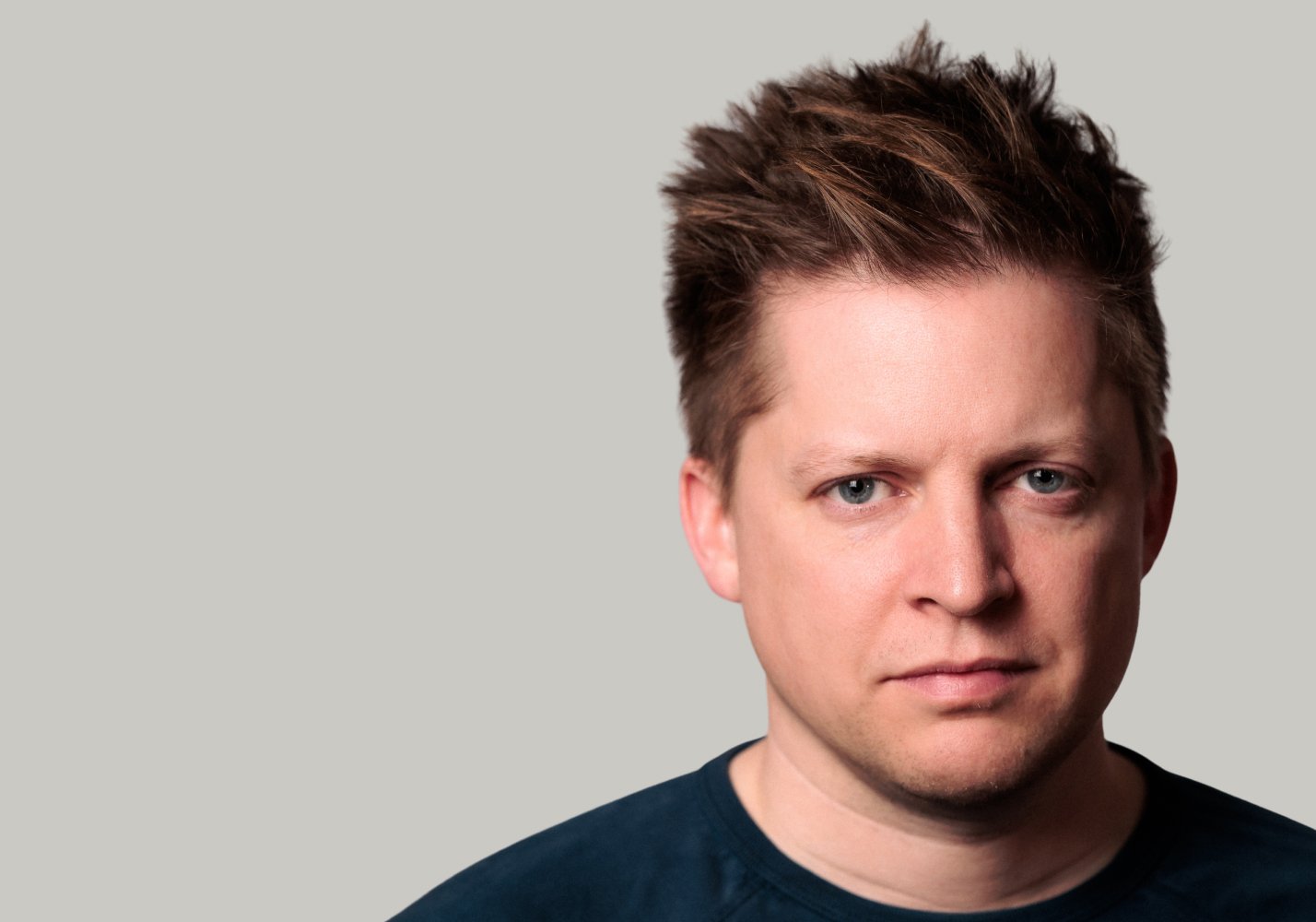- MAIN PAGE
- – elvtr magazine – LEO BURNETT SENIOR COPYWRITER RYAN BROWN: “I APPROACH CAMPAIGNS LIKE SONGS”
LEO BURNETT SENIOR COPYWRITER RYAN BROWN: “I APPROACH CAMPAIGNS LIKE SONGS”

A gifted wordsmith, an accomplished advertiser and an entrepreneur, Ryan Brown knows how to harness the power of words to the advantage of his clients. As a senior copywriter at Leo Burnett, Brown has written copy for a host of world-renowned brands including Bacardi, Jim Beam, John Middleton and ComEd. The Chicago-based advertiser is always exploring new avenues of expression, from producing an acclaimed YouTube series to writing his own rap music.
His ELVTR course on Creative Advertising, taught in partnership with fellow Leo Burnett advertiser Yi Ma, will help learners master the fundamentals of the profession, from following a brief to creating words and visuals that can make a campaign stand out. In the following Q&A, Brown opens up about how he approaches advertising, his favorite campaigns and his professional routine as a copywriter.
What’s the most interesting trend in the advertising world right now?
I would probably say the overall implications of AI. It helps people be more creative and productive. But it still matters who’s using the AI program. That trumps everything.
That doesn’t mean that anyone will be able to become an advertiser by using AI. People who are more generalists will be able to improve a specific skill and do more things with a bit of help from AI, be it video editing, design, music editing or writing. It gives people who have a certain amount of tools the ability to do a lot of things.
Do you use ChatGPT or other Gen AI tools yourself?
I use ChatGPT, AutoPod for podcasts I do outside of work, and Midjourney just for creative exploration.
So what was the last task you assigned to ChatGPT?
I asked for some help with holiday phrases, because I was making something for a client that had to represent all holidays, something that wasn't denominational. I wanted it to give me some real holiday-themed phrases, so that based on that I could create something that was less holiday-focused.
When you work on a new project, what’s your routine? How do you start writing?
My process usually starts with research on the client and the competition, to understand what's going on in that space. After that, I'm an old school pen-and-paper type of person. So I get the pen and a paper out, draw stuff down, jot down ideas and just fill up the paper. And I'll do that for a while, before I'm finally ready to put something into a Word processor. So that's generally where I start: research and then sketching.
How do you tap into your client’s brand identity to build a campaign?
The brand identity usually comes from the brand book. That tells you what colors you can use, what words, what tone of voice, the brand's positioning, their mission. And it's your blueprint, your guide. That's how I get the brand identity and its voice right.
From there, you think about new spaces, new trends, what's going on with the industry to create a campaign that can resonate and stand out. Maybe the client wants to keep doing something that's just continuing previous campaigns. Sometimes the client wants to do something that's a little bit more adventurous.
Are small brands more adventurous than bigger ones?
It depends on the brand and the client. Bigger clients tend to be more conservative, but some are willing to take more risks. The main thing is whether the brand’s business is booming and thriving or not. That indicates the risk they will take. If not, they will be a little bit more limited.
What’s the most unusual source of inspiration that you have used to create a campaign?
I'm a rapper. Sometimes I will just approach campaigns like songs. I am thinking, how can I write something that feels like a song? So I'll take a step back and think “If I was writing a song about this, how would I write this line?” Or how would I approach it? How would I shorten it or make it longer? How would I make it flow?
So I would probably say that rap songs are my spark and inspiration when I'm writing.
So which artists do you listen to while writing?
While I'm writing, I actually like to watch movies or TV shows. I love music so much that I can't listen to it while writing. Because then I start listening to the music and wait for the next song. With a TV show, if it's something I'm not invested in, I just go through episodes and let them play in the background while writing.
Recommended courses
Which TV shows in particular?
I watch Netflix shows like The Flash, The Simpsons and Bob's Burgers. I also watch superhero movies. They're my comfort. I grew up watching animation, fantasy and sci fi. For example, currently I'm just watching the Avengers over and over again.
How do you deal with writer’s block?
I do experience writer's block from time to time. I go back to the brief that I was given, circling the assignment. Usually I don't have to create something for every single assignment out of thin air. Maybe it's a continuation, inspired by something the brand has already done.
So if I'm having writer's block, I'm trying to tell myself not to overthink. One of my mentors taught me that you should invite common sense to all your meetings. Through common sense, and by keeping it simple, I usually find a way out of it.
How do you keep track of any cool ideas you might have?
I have my work notepad where I'm constantly writing. If I get an assignment, like emails, I'll write the emails down. Then I create the first version of the document that I will share with our art director and team.
And then, I just keep making different versions of that same document. Maybe I will add headlines or take them away and keep working. Sometimes version two has to be completely refreshed, because it's just not working. It's not really hitting the mark like the client needs, or something is missing.
Do you ever stick to the first idea that comes to your mind when brainstorming ?
I try to come up with the best solution, because the first idea usually is not going to be the best one. We teach our students to try to come up with 100 ideas, because after you go through the first 20, the obvious stuff, then you start to get into an interesting, weird kind of space where a lot of people don't operate.
But that's also where the best ideas come from, because they don't come off the top of your head. You have to think about things and double down on stuff.
Are the best ideas your own or do they originate from discussions with other people?
This is a team-oriented type of industry. I enjoy working with people, because it gives you more perspective. I'm only one person, I only have my own set of experiences. I'm aware of other people's experiences and I also do research.
If I could collaborate with you on an idea, it would be much better because we'll have a lot of experience together. I get a whole different type of perspective on things. That'll make our campaign even better.
How do you create good copy for successful campaigns across different media?
With every channel, it's important to know the industry standards as an advertiser and also what's trending. When you write a TV spot for example, unless your brand says that you can let go of all the traditional things that we do on TV, you need to have the logo at the end and make sure you got the legal language right. So it's more about knowing what is needed for each channel, and how to use it.
Twitter (now X) is different from Instagram. And you have to write differently, you have to be informed on that channel. It goes back to research: understanding your clients business/ category, because that's always gonna be a big part of the solution.
What's your preferred medium?
I am getting a lot better now at TV. I've had a lot more video experience recently. That's probably my favorite medium to work on, but at this point I can do all of them. Social media is more fun though, because you can be a bit more creative.
Is offline advertising still important?
Hundred percent. If you have a local business and all your customers are in one metropolitan area, you can do targeted ads. What's better than riding the train or driving your car and seeing stuff across a bus or a billboard?
Word of mouth is still the best advertising. If I tell you that this juice is really good, that’s probably a lot better than an ad. That still resonates with people. So there's a place for that. But money-wise, that part of the business is a little bit different. So it just depends on the brand and the business.
Which brand do you admire for being truly innovative in its advertising campaigns?
A couple of years ago I really liked Coinbase. When they threw the QR code on the screen, I liked how crazy that was. It defied all the rules of advertising.
Also a brand Rihanna has created, Fenty. She does her fashion shows there, and it’s inclusive, immersive and it uses multimedia. And you'll see people of all ages, all sizes and from different countries. The production itself is so high level that it just sets it apart. I really appreciate that.
What was the last ad that really blew your mind?
Recently, I liked the Beats by Dre commercial with Lebron James. All his family was in it, his wife and his kids showed up too. If you have been a fan for a while, you remember when he was a teenager, and now his kids are teenagers and he's still playing. It's a remarkable feat. I feel that Beats by Dre covered that in a cool way. It wasn’t cheesy, it was somewhat emotional, but still relevant and cute.



